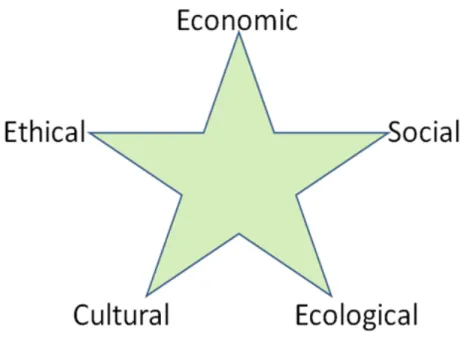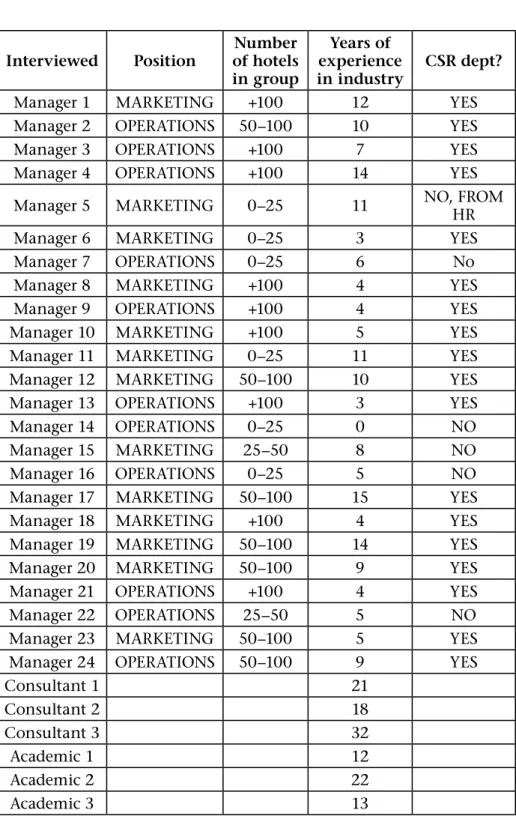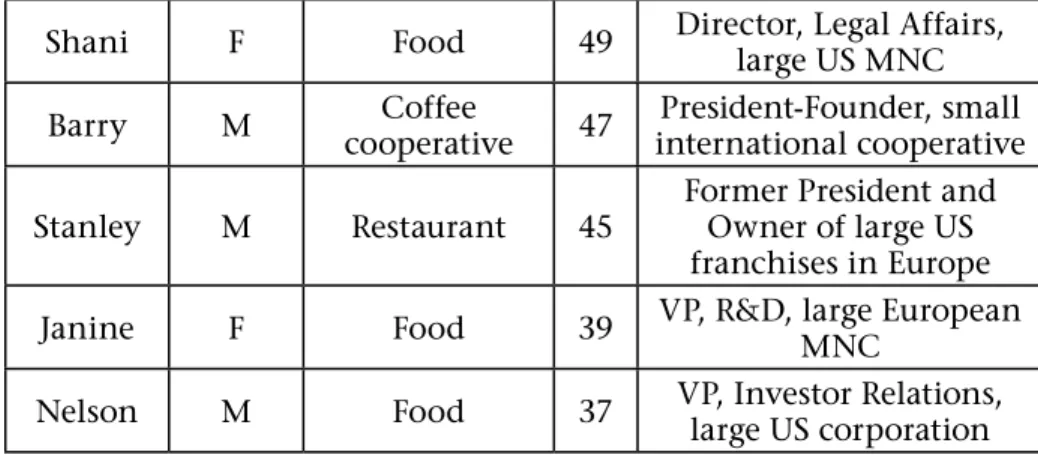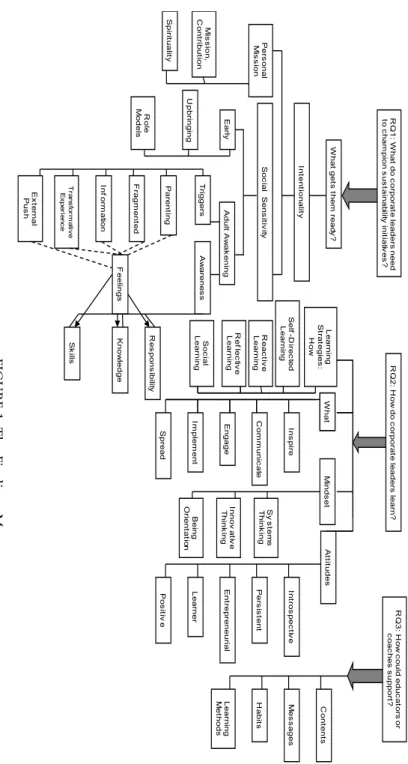The Journal of Management for Global Sustainability is the official journal of the International Association of Jesuit Business Schools (IAJBS). One of the other calls particularly dear to the hearts of Jesuit business schools and their universities is contained in the six UN Principles for Responsible Management Education – a protocol that a growing number of Jesuit business schools are adhering to.
CURA PERSONALIS,
HOMINES PRO ALIIS, MAGIS
¿Dónde podrían los miembros de las escuelas de negocios y universidades jesuitas encontrar un bocado de enseñanza empresarial y transformación social lo suficientemente pequeño y sabroso para tomar y masticar? Y tal vez al profundizar en esta frase y generar conversaciones sobre agregarla a nuestra misión y hacerla parte de los pilares de la educación jesuita, podríamos comenzar a influir en las decisiones que tomamos sobre la enseñanza, la investigación y el servicio.
TOWARDS A HUMAN-
CENTERED THEORY AND PRACTICE OF THE FIRM
PRESENTING THE HUMANISTIC PARADIGM OF BUSINESS AND MANAGEMENT
In the following sections, we will review why we need a new basis for sustainable business practice, and continue with the presentation of two competing paradigms - the economic and humanistic paradigms of business. There are two ancient instincts common to all animals that have some ability to perceive and evaluate their surroundings - the instinct to acquire (dA) resources to sustain life and the instinct to defend (dD) against all life-threatening entities. Lawrence (2010), however, suggests that we need to re-evaluate this well-known phenomenon, not just as "the way people are".
SUSTAINABLE
ENTREPRENEURSHIP IN ASIA
A PROPOSED THEORETICAL FRAMEWORK BASED ON LITERATURE REVIEW
However, it soon became clear that many of the social and environmental impacts can be found in the supply chain. Thailand considers SMEs as one of the main drivers of economic development, playing an important role in accelerating economic growth. Business growth is the force fundamental to a country's economic growth.
Based on the concept of the triple bottom line (TBL), Majid and Koe (2012) proposed a revised model of sustainable entrepreneurship consisting of four domains, namely economic, social, ecological and cultural. Their model suggests that to be recognized as a true sustainable entrepreneur, one is required to give equal priority to each of the four domains proposed in the model. A "heuristic approach" to stakeholder analysis that requires two mappings of the entrepreneurial components has been proposed.
Eradicating poverty, reducing environmental degradation and achieving sustainable economic growth are some of the main macroeconomic goals in the Asian region. Entrepreneurship, competitive advantage and firm growth: the case of the radio control model corporation in Taiwan -.

SUSTAINABLE MARKETING
AN EXPLORATORY STUDY OF THE
PERCEPTIONS OF MARKETING MANAGERS IN INTERNATIONAL SPANISH HOTELS
Sustainable development and the role of marketing within sustainability are perhaps the most important and vexing problems facing marketing in the coming years (Schaefer, 2005). Thus, social responsibility is intertwined in the process of marketing (Lazer, 1969) and value co-creation (Prahalad & Ramaswamy, 2004). Sustainable marketing should have particular resonance in the hotel industry as it is a sector with significant environmental impact and a strong international presence in poorer countries (Kirk, 1996; Webster, 2000).
Previous research in the hotel industry suggests that marketing professionals (mainly those in leading international brands) value sustainable marketing in terms of positioning, and as an approach that helps create competitive differentiation and build trusting relationships with stakeholders (Kasim, 2006). . The questions sought to elicit managers' perceptions of the key areas in the implementation of sustainable marketing. I'm not saying it's bad, it's just the bank with "the most" or the hotel with "the best".
Sustainable marketing is seen as risky, unwarranted and irrelevant for major markets, and expensive and unsolicited in the hotel industry. The first contradiction is the difficulty of implementing sustainable marketing against the background of current (unsustainable) consumption patterns (Connolly & Prothero, 2003; .. The second contradiction lies in the different perceptions of the relative importance of adapting to 1) growing awareness (which is seen as a direct influence on the hotel industry) and 2) social awareness.

A MATTER OF BEING
DEVELOPING SUSTAINABILITY-MINDED LEADERS
To this point, a qualitative case study of 17 organizations engaged in corporate social responsibility initiatives examined the relationship between management and sustainability, suggesting "the need for management theorists to better understand the factors that lead certain managers to focus on sustainability" ( Quinn & Dalton, 2009: 27). Intentionality was found to be rooted in the development of social sensitivity and in a sense of "personal mission". The social sensitivity, on the other hand, was found to be developed either in the early years of their lives (through their upbringing or role models from their childhood and teenage years) or by some form of "awakening". Some clearly unique aspects were found, such as childhood experiences, meaningful encounters, and traumatic triggers (eg loss of a loved one, accidents, health problems) as well as transformative ones (ie the experience of becoming a parent).
For the purpose of this article, the data collected in the original study was viewed with a new lens – the lens of spirituality, with particular focus on how the dimension of "being" manifested in the discourse of the interviewees as ' an element of their "sustainability mindset." Additionally, since the study provided guidance in designing a program to develop such a mindset, "being"-related comments by students in various offerings of the course are also included in this article. This statement is consistent with Vaill's (1998) concern that organizations should pay attention to the "mental state" of their leaders, which means "the sense that individuals have about the fundamental meaning of who they are, what they do, the contribution butions what they make” (p. 218). There is a new distinction between utilitarian work, which is framed as mundane, and "the work," which implies work that is symbolically valuable to the individual and.
Being close to nature - experiencing it - taught them to pay attention and observe the wisdom of nature and what we can learn from it. There is the economy, and within the economy is embedded society, and within it is embedded nature.

THE ROLE OF INFORMATION AND COMMUNICATION
TECHNOLOGIES IN GLOBAL SUSTAINABILITY
A REVIEW
In its 1987 report entitled "Our Common Future", the Brundtland Commission defined sustainability as "development that meets the needs of the present without compromising the ability of future generations to meet their own needs" (World Commission on Environment and Development, 1987 ). ). While this definition gives the report an environmental focus, the document also recognizes that "development cannot be said to be sustainable if it is not equitable or if it does not meet the pressing needs of the majority of the world's inhabitants." The Journal of Management for Global Sustainability changes the definition in its first editorial, stating that "global sustainability is a process that meets the needs of the present generation while enhancing the ability of future generations to meet their own needs" (Stoner, 2012). . The UN defines ICT in general terms as "tools that facilitate communication and the processing and transfer of information and the exchange of knowledge by electronic means". The definition makes room for the whole range of electronic digital and analogue ICT from radio and television to fixed and mobile telephones, computers and electronic media such as digital text, audio-video recordings, the Internet (including Web 2.0 and 3.0). ), social networking and online communities.
This article identifies the challenges and issues in the successful use of ICT, thus addressing the "now what" objective of the Journal of Management for Global Sustainability. In ICT4S 2013: Proceedings of the First International Conference on Information and Communication Technologies for Sustainability, ETH Zurich: 259–264. In ICT4S 2013: Proceedings of the First International Conference on Information and Communication Technologies for Sustainability, ETH Zurich: 283–287.
In ICT4S 2013: Proceedings of the First International Conference on Information and Communication Technologies for Sustainability, ETH Zurich: 265–270. Panel analysis of the strategic link between information and communication technology and the provision of public health.
RESÚMENES
Hacia una teoría y una práctica de la empresa centrada en el ser humano: Presentando el paradigma humanístico de los
Emprendeduría sostenible en asia: Un marco teórico propuesto basado en la revisión literaria
Márketing sostenible: Un estudio de exploración en la percepción de los gestores de marketing sobre los hoteles
El marketing sostenible es uno de los principales retos a los que se enfrentan las empresas en los próximos años por su potencial impacto tanto en el crecimiento de las empresas como en la imagen de los empresarios, de ahí la necesidad de que los directivos gestionen su implantación. Este artículo examina cómo los responsables de marketing hotelero en España ven y gestionan el papel del marketing en la mejora de la gestión empresarial sostenible y los cambios necesarios para llevar a cabo una labor de marketing sostenible. El estudio aporta veinticuatro casos empíricos para descubrir qué cambios corporativos los directivos consideran necesarios para conseguir una industria hotelera sostenible.
La principal contribución de esta investigación es un marco inicial de cuatro campos en los que los gerentes establecen las prioridades para la gestión de la empresa con miras a implementar un marketing sostenible.
Un asunto del ser: Desarrollo de líderes mentalizados sobre la sostenibilidad
Siguiendo el enfoque innovador de esta revista para abordar la pregunta "¿y ahora qué?", este autor también ofrece sugerencias para educadores de adultos, capacitadores corporativos y tutores sobre cómo pueden desarrollar una mentalidad de sostenibilidad mediante la incorporación de actividades que maximicen la participación de parte de la audiencia. El papel de la tecnología de la información y la comunicación en la sostenibilidad global: una visión general.
El papel de las tecnologías de la información y la comunicación en la sostenibilidad global: una revisión
La investigación anecdótica y teórica sugiere que el impacto de las TIC se siente particularmente en el desarrollo sostenible. Es así como identificamos los principales retos que hay que afrontar para conseguir un mundo sostenible basado en las TIC. Estudiar el impacto macroeconómico de las inversiones en TIC también puede ayudar a los países a adoptar políticas selectivas de inversión en TIC que promuevan la sostenibilidad mundial.
The journal welcomes submissions from all management disciplines (eg, international business, accounting, marketing, finance, operations) and related disciplines (eg, economics, political science) as long as the manuscript contributes to our academic understanding of the role of management in achieving global sustainability. These articles will undergo a double-blind review process overseen by the editorial board. Submissions will be encouraged in two lines, with research summaries and book reviews of no more than 1,500 words and full research papers of no more than 7,000 words.

